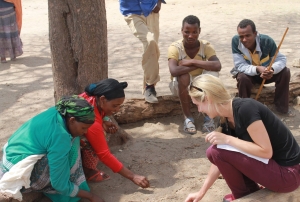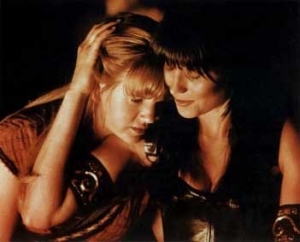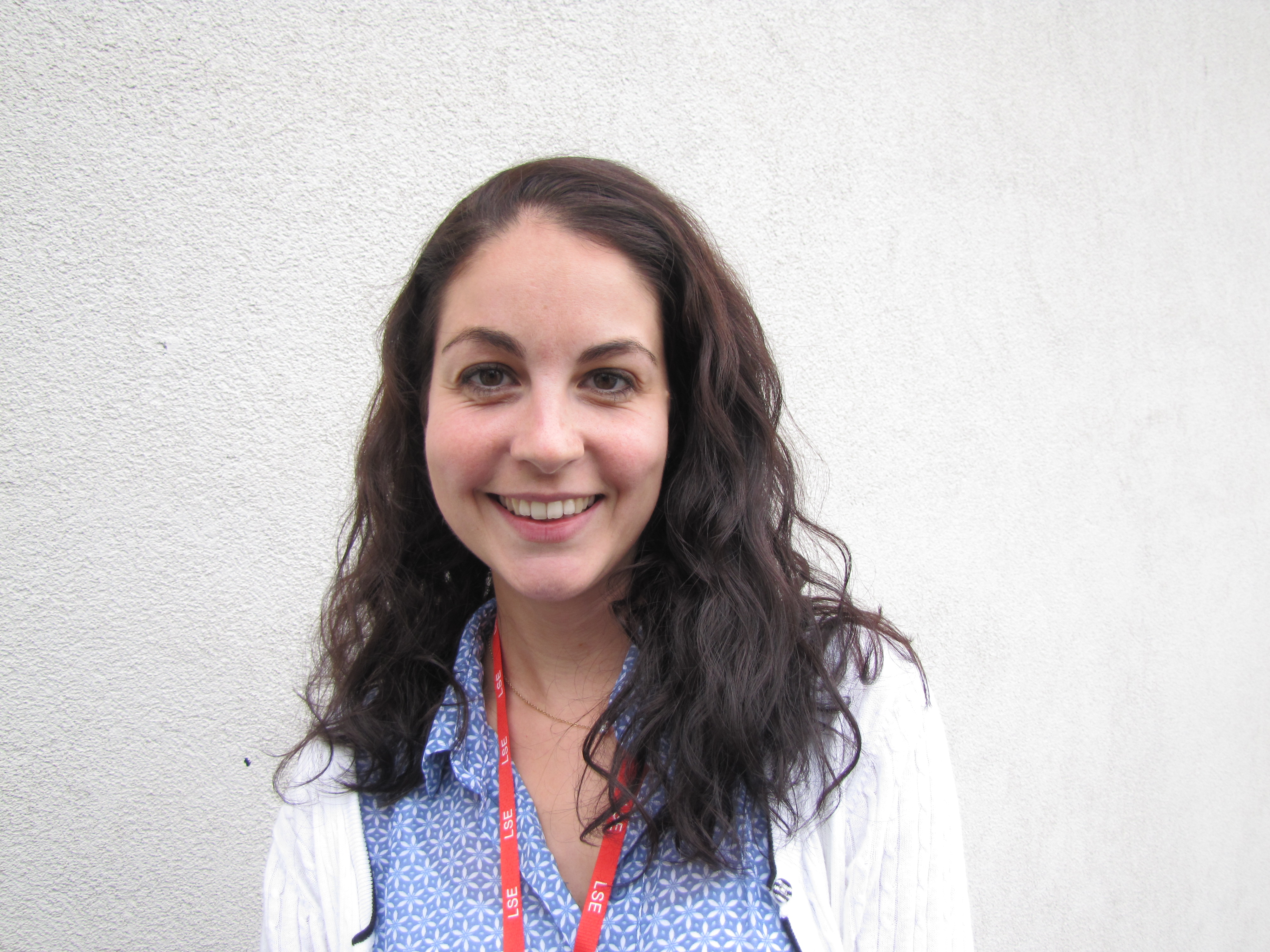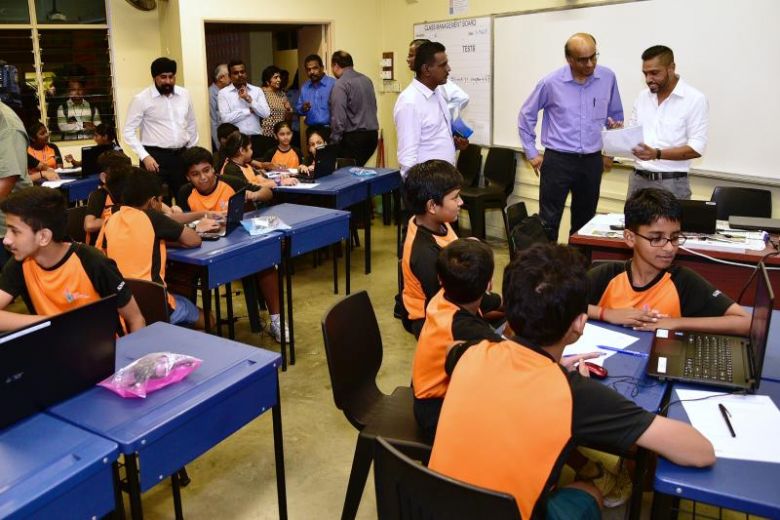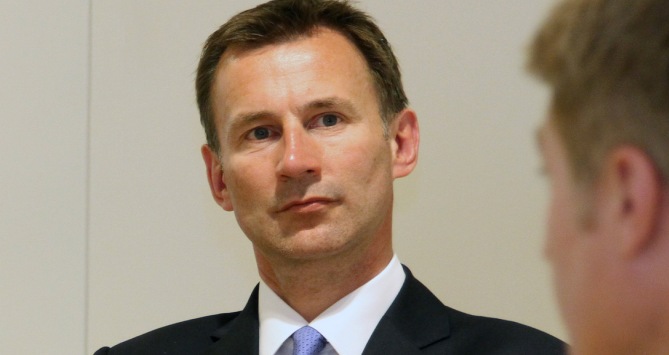Today is International Women’s Day 2017, a global day celebrating the social, economic, cultural and political achievements of women, as well as marking a call to action for accelerating gender parity. This year’s theme is #BeBoldForChange, a call on the masses and the individuals to help forge a better working world that is more gender inclusive. To encourage people to think further about what this would look like, we have asked students, staff, and friends of the department to tell us what being bold for change means to them. 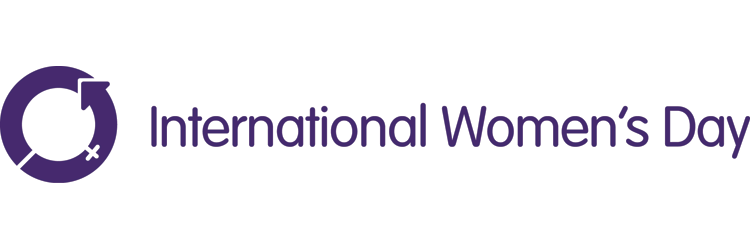
Stand in Solidarity
– Terhas Clark, MSc Development Management student
In developing countries, women and girls with disabilities are subject to systemic exclusion and marginalization. They face the “double discrimination” of being both women and disabled. This stigmatization is exacerbated for women with disabilities who are from marginalized ethnic minorities or those who identify as lesbian, bisexual, or transgender. The existence of this systemic and pervasive discrimination that women and girls with disabilities face is not only limited to developing countries. A 2011 report conducted by the World Bank and World Health Organization revealed that gender-based violence is two times higher among women and girls with disabilities than among able-bodied women and girls.
According to the United Nations, women with disabilities experience the highest level of unemployment in developed and developing countries. In developing countries, the unemployment rate for women with disabilities is 75%. Furthermore, women with disabilities are also the least literate minority group. According to UNESCO, only 1% of these women in the developing world are literate. Often, these inequalities are exacerbated because feminist scholars, academics and the international development community neglect the struggles of women who face multiple layers of oppression. It is remarkable that March 8th has been reserved to commensurate the contagious courage of women globally. However, it is important to be mindful of marginalized and disenfranchised women and girls, especially women and girls with disabilities who are often left out of these discussions.
After all, the need for awareness, conversation and action lies not only where the most blatantly oppressive forms of bigotry are encountered and not only where diversity is most readily recognized, but all over, especially wherever a population exists in the shadows of marginality and voicelessness. The International Development community and practitioners need to respond and take measures to ensure inclusion of women and girls with disabilities in all development interventions. The obstacles to inclusion are often dependent upon the willingness of academics and development practitioners to change and be aware of their bias. We need to keenly be aware of who’s right’s we are celebrating on International Women’s Day.
This awareness is not confined to accessibility in the narrow sense of making sure women and girls with disabilities have physical access to a building, but rather and more broadly entails an honest examination of how aware, accepting and approachable we are as scholars, development students and practitioners towards people who are diverse in all kinds of ways in how they approach International Women’s Day. When we do this, it sets standards for us all to further push the horizons of human solidarity. May we all stand in solidarity of all women, regardless of their physical ability, skin color, sexual orientation or ethnic identity to be able to reach their economic, political and social potential. #beboldforchange
What A Woman Can Do
– Priscilla Sena Bretuo, MSc Development Studies student
“What a man can do, a woman can do better.” This was a quote I heard often while growing up in the suburbs of Ghana. Yet, like many other girls raised in a typically patriarchal society, I never had the chance to explore its possibilities. My thoughts, beliefs and actions were shaped by cultural and religious norms that always made men appear smarter, better, stronger, more deserving to be in the limelight and more deserving of opportunities.
I learnt silence, docility, timidity and unquestionable submission which were the perceived qualities of every “good woman”. I was taught the ultimate for a woman is to aspire to marriage and to please her husband. These qualities were reckoned to indisputably make a woman the perfect “marriageable material”; every man’s dream of what a wife should be.
For so long, I believed these things and was trapped in a box of low self-confidence, low ambition and no sense of achievement, all in a quest to avoid being branded a social misfit. This was until I had an epiphany that changed my mind, and my life.
I realised women and men may never be on the same scale and women can never have power over men. They shouldn’t need to. There are roles in society that will always be dominated by men and that is fine by me. However, every woman should be empowered to have power over her own self, over her thoughts, over her actions, over her motivations and over her destiny. Women should not be put in gendered boxes that paint them as “difficult” or “unpleasant” when they try to be self-assertive and ambitious. No woman is less of a person than a man. The only telling difference between men and women is physiology. However, in the expression of the spirit, soul and intellect, men are no better than or superior to women.
I have decided to be bold for change and not be vulnerable to society’s expectations of me as a woman. I have decided to change teams from what a woman should be to what a woman can be. I am set to defy the odds and give life, greatness and freedom a shot. I have determined that neither social nor cultural norms will write the story of my life. I will! I am going to explore every opportunity that comes my way, unlearn, learn, relearn, make mistakes, fail, and rise to the top, far above any feeling of inadequacy; of not being good or strong enough. I have decided to give myself a chance. I did not choose to be a woman but I am a woman for a purpose and I am not going to live life, striving to be what others want me to be. I will be what I will be! #beboldforchange
What Men Can Do
– Charlie Ensor, Journalist and friend of the department
The involvement of men in the feminist cause is not to detract nor take away from the struggles women have endured in the fight for equality. Conversely it is to understand that, in order for real equality to exist men must strive to defeat the objectification and normalisation of violence towards women. Unless we root this out from our ranks; unless we recognise that sexism affects us too; and unless we speak out against sexism and provide an environment which is intolerant towards sexism… the gains made by previous generations can never be cemented in place. #beboldforchange
Inspiring, even in the face of adversity
– Martha Geiger, MSc Programme Manager International Development
Happy International Women’s Day to all the beautiful, strong, thoughtful, intelligent, sensitive, generous, creative, funny, interesting, remarkable, inspiring, capable, and extraordinary women in the world! Feminism is as important a movement as it is an ideology, and it will continue to be until we achieve equal political, economic, social, cultural, and personal rights for women globally. I admire all women who are not afraid to chase their dreams, put their names forward, let their voices be heard, and those (both men and women) who fight for equality. I am eternally grateful for the opportunities I have had to meet with some of the most inspiring women in marginalised communities across Ethiopia, Botswana, and Malawi. I truly admire these women for their strength, hope, courage, compassion and laughter- even in the face of extraordinary difficulty. #beboldforchange
The Courage that Changes the World
– Roxane Ray, Course Administrator, MSc Development Studies and MSc African Development
“In a time of ancient gods, warlords and kings, a land in turmoil cried out for a hero. She was Xena, a mighty princess forged in the heat of battle. The power…the passion…the danger. ..Her courage will change the world.” ―Series intro, narrated by Donald LaFontaine.
Often it is the lessons we learn in childhood that resonate the strongest, and which shape who we become. Xena inspired countless people worldwide, and one of them was eight year old me. I think before her I had no female role model from the world of entertainment. The characters of Xena and her friend Gabrielle, and the adventures they had opened my eyes to issues such as gender equality, shaped my understanding of unconditional love and taught me the importance of being independent and self-sufficient.
And who was Xena? Well, twenty years ago a television show emerged that centred on a woman. This woman could do everything a man could do, and more. She was Xena, the Warrior Princess, who lived in the ‘time of ancient Gods’ ( ie ancient Greece).
She was also an evil warlord. However, after meeting the legendary hero Hercules, Xena the Warrior Princess decided that she wanted to change her life. She decided to use her skills to help others instead of trying to rule the world. Xena found an ally in a villager, Gabrielle, who had faith in her humanity and reminded her of it. This new “good” Xena had to confront the doubt and judgment of her peers, as well as fight old and new enemies on her journey towards redemption.
Xena could be seen as a feminist icon. In the context of the show, however, she did not treat herself as an icon or any sort of symbol. Xena was complex- she was not just a hero, nor a woman, but a well-rounded human being. She was vulnerable and strong, powerful and flawed. She made mistakes. She fought oppression and overcame her fears to do what she thought was right. This was a person who did not allow herself to be limited by the opinions and judgments of others, and she was treated with humanity by the show’s creators. My childhood was formed by this awareness that it is possible, borrowing the words from Henry David Thoreau, to “live the life you have imagined”. It is possible to overcome the obstacles that the world throws at us and to change, no matter who we are or where we come from.
On International Women’s Day I will be thinking of Xena, and remembering one of the most important lessons she taught me- that the first step to freedom starts within. #BeBoldForChange
You can find out more about International Women’s Day 2017 here.
The views expressed in this post are those of the author and in no way reflect those of the International Development LSE blog or the London School of Economics and Political Science.


